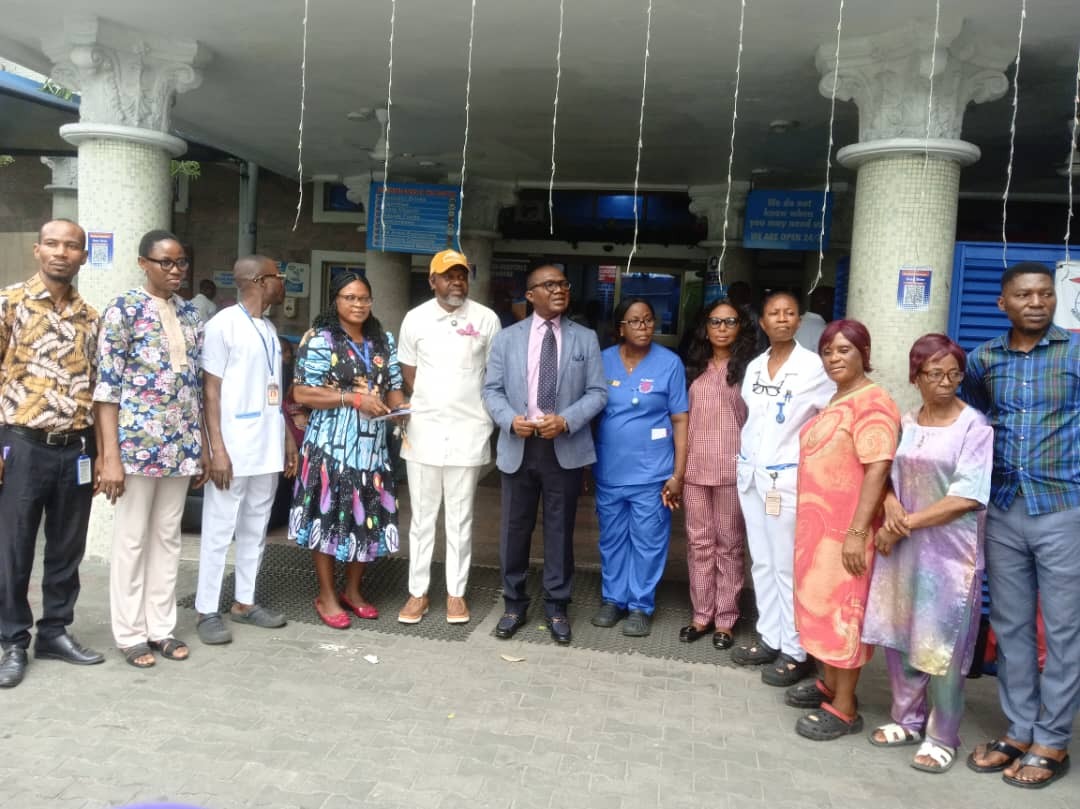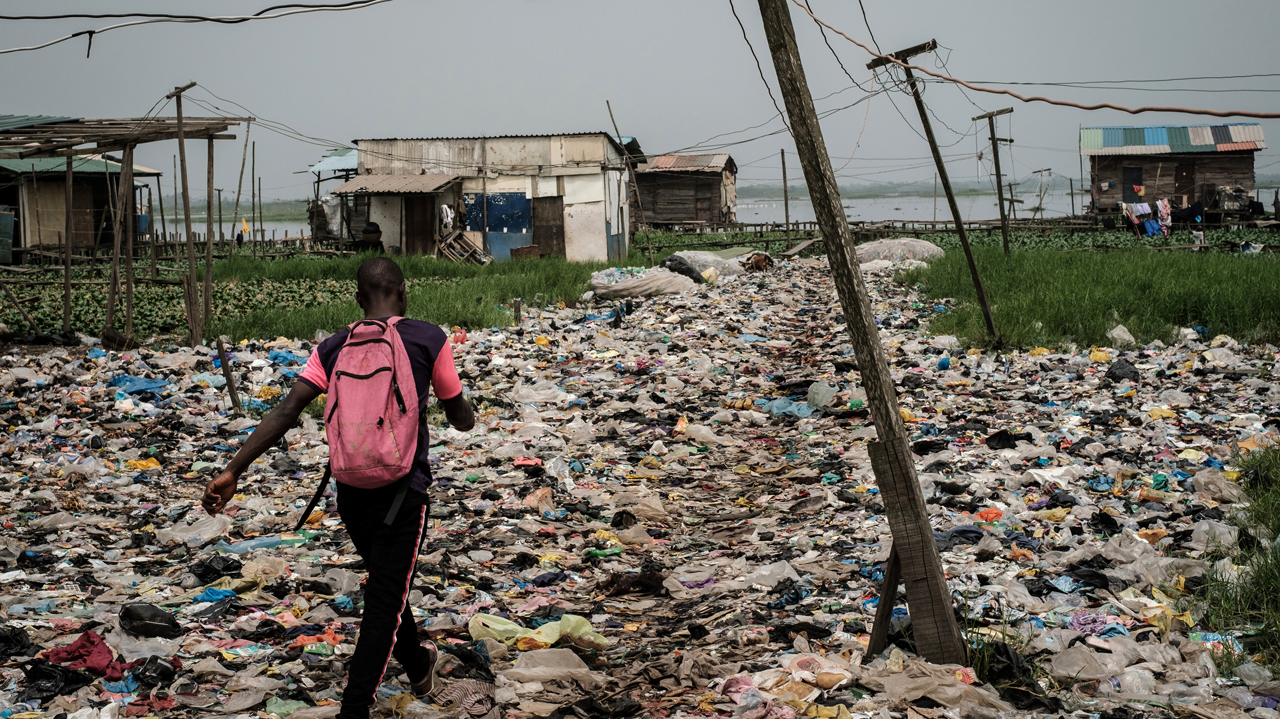• 50,100 doctors licensed to practice this year in Nigeria, says MDCN He warned that foreign-trained doctors from China, Ukraine and Venezuela are half-baked and they are among the 463 out of 640 plus graduate doctors that failed MDCN’s pre-registration/qualifying exam. Sanusi, however, recommends at least six months remediation programme to re-orientate doctors trained abroad before they can take the pre-registration exam. CHUKWUMA MUANYA writes.
• Says graduate doctors from China, Ukraine, and Venezuela are half-baked
• 463 out of 640 plus foreign-trained doctors failed the pre-registration test
• Recommends at least six months remediation programme to re-orientate doctors trained abroad

Dr. Tajudeen Sanusi is the Registrar, Medical and Dental Council of Nigeria (MDCN). Sanusi, in this exclusive interview with The Guardian, raised the alarm that Nigeria has only one doctor to attend to 5,000 patients against the World Health Organisation’s (WHO) prescription of at least one doctor for not more than 600 patients.
The physician, who specialised in Medical Bioethics, said the Council has licensed 50,100 doctors in 2022 to practice in Nigeria.
There have been concerns about the competence or otherwise of medical doctors that trained abroad?
IT is a global practice that when you train in one jurisdiction and you want to practice in another jurisdiction, you have to do what is called an assessment exam or competence assessment exam, which we have been doing over a period of time. It is worrisome that anytime we conduct the exams, the results are usually very poor.
In spite of the fact that the results are very poor, we feel very concerned because these people are not even allowed to practice in those countries where they came and they are our children, we cant reject them. So, it is becoming very worrisome and we expect that before parents send their children to any school outside the country, they should try as much as possible to find out if those schools are okay.
One thing is that if you send your children to a school outside Nigeria and they cannot practice in those countries, avoid sending them to those countries. It has been very worrisome to the extent that the board of examiners felt that a remediation programme should be put in place, which was developed with some kind of curriculum to tailor them toward the needs of our society
you mean extra programme when they come back?
When they come back before they present themselves for any examination.
How many years or months?
They were considering one year before but we said let us start from six months. If after those six months, they are still not passing the exams, we can now extend it to one year. We know now that in Ghana, it is a one-year programme.
Do they have to pay?
They have to pay because it is a special programme and a teaching hospital for each of the geopolitical zones has been chosen. We use them as pilot programmes so that over time, we can now extend to other teaching hospitals.
Unfortunately for us, the National Assembly said no because they cried to National Assembly that the MDCN is just trying to get money from them. That was not even the issue. The money is not coming to the MDCN; it is to the teaching hospitals where they are going to train. To be frank, the teaching hospitals brought up a fee of N1.5 million each. The council chairman said, ‘it will be too much on the parents.’ They came down to N1.2 million until they finally agreed on N900,000 because it is a special programme.
Is there any assurance that after the course, the person can now pass the pre-registration exam?
It is not an assurance. For us, it is to reorient them. The things we discovered is that these people never touched patients throughout their six-year programme. You know medicine is a science and art. That is why when you have a university; you have a university teaching hospital attached to it so it serves as a workshop for the medical students because you need to have this hands-on skill acquisition. That is why when you go to LUTH, University College Hospital (UCH), University of Nigeria Teaching Hospital, Ahmadu Bello University Teaching Hospital (ABUTH) and University of Benin Teaching Hospital (UBTH), you see medical students following their consultants, when they are in the clinic, doing a ward round, even in the theatres. Those are how they learn the art. From the interaction we had with these students, nothing like that happened, they were mainly taught on medical dolls. So, that is the problem. They are our children, we can’t throw them away and we need more doctors in Nigeria.
Most of these students that are struggling to pass your prerequisite exams before registration, where are they coming from? Is it the United Kingdom (UK) or the United States (UK)?
To be frank, those who came from the UK, US, Canada, Germany, and even Ghana are here. Most of the time, they take the exams even once and they pass, at worse, a second time. While we have others taking the exams for the fifth or sixth time. It is most unfortunate.
So, which countries are you having problems with?
In most cases, the majority of people we have problems with are mainly from Ukraine and China. They claim the programme is an English language programme but we all know that the medium of expression in those countries is their local languages. How come all of a sudden the English language programmed? It is like UCH and LUTH that we know use English because it is our local language, but we now start running programmes in a strange language for students from those countries to be rushing down. In one of the countries in the Far East, it was appalling to discover that for their own indigenes, the class was not more than 50 students, while for international students, it was limitless and it is not the same type of exams that they write.
In fact, when we spoke to some of the Nigerian students there, they said they were frustrated that at times when some of these lecturers can no longer express themselves in the English language, they just turn to the local language. It is a big problem and we pity some of the parents. We pity them because they want the best for their children. Unfortunately, those schools are not the best schools.
Did you check the background of the students that are abroad to study Medicine?
In fact, some of them could not get admission locally and when they submitted their School Cert results, it was appalling. Some of them did not have a science background. Some that had science background had poor results like C6, C5 in science subjects, while we are in a country where even some people that made five As but could not secure admission. Let me give you a particular country as an example, Venezuela. We all know that the medium of expression in that country is Spanish. Some people wrote School Cert in 2012 and by 2017 they have come back with MD degrees in five years. So, where did they learn the Spanish language? The worst situation is that some of them did not have a science background at all. It was a very terrible thing. I think the public needs to be guided. Anytime they are sending their children abroad to study, they should find out from MDCN where they can send them. Yes, we cannot they you how to spend your money but we need to guide you appropriately.
What informed your fresh concerns?
It is the failure rate of the recent exams they did. The failure rate was worrisome. The exam ended on Friday, June 24, 2022, and the results were released that Friday.
How many students were involved?
For Dentistry, there were about 17 candidates and only six passed. For Medicine, there were 640 plus candidates and only 177 passed which is less than 45 per cent. We are in an environment where we need more doctors. The way we are going I think the six months remedial course should be sacrosanct to reorient them. We cannot operate in isolation, Ghana is close to us and their programme is just one year. It is non-negotiable.
Are recommending one year?
I won’t recommend one year, I am just secretary to Council. It is what Council decides.
What is the relationship between this situation and that of brain drain?
The issue of brain drain is a very difficult thing to discuss. One thing is there are quite a lot of Nigerian doctors over there doing nothing. What happens is as soon as everything is set over there; they apply for a letter of good standing, when we give them it will enable them to work there. There are other cases, which most people refer to as brain drain. One, you know resident doctors have s specified period of time they should spend in being trained for the speciality programme that is five, six, seven years at most. Some of them have overstayed. Some of them were asked to go to create rooms for others.
Go away without passing the consultancy exams?
Yes, without passing the exams. That is one area. Another area is that the people who are on the ground who are specialists, some of them go for one-year sabbatical leave. So, that is what they call brain drain. But from our records, the way it is being reported that doctors are leaving the country is not true. Doctors are not leaving; we have over 50,000 doctors in Nigeria.
How many are registered?
Since the inception of MDCN, we registered 110,000 doctors. Out of that 110,000, some have died and so many other things.
Are you not concerned that Nigeria’s doctor: patient ratio is far below the World Health Organisation (WHO) recommendation of at least one doctor to 600 patients?
Yes, we know is 110,000 doctors to 200 million Nigerians is even far below the recommendation by the WHO. But those who are licensed to practice this year are just 50,100 doctors. Remember, some of these people are not even in the country. What they are trying to do is to maintain their registration in case they want to do one or two things in Nigeria and one or two of them do come for the medical mission.
How many Nigerian doctors are practising abroad that MDCN gave a letter of good standing?
I cannot give you that figure now but the letter of good standing does not mean that all of them are practising there. A letter of good standing is needed for a process, to enable them to practice in those countries.
What is your message to Nigerians as regards training and retraining of doctors?
Our message now is to appeal to the parents and possibly advise them on the need for their candidates to have this remediation programme which Council have put in place for six months and let us see how it goes. We cannot discuss the issue of the money because we are not the training centres. It is the training centres that discuss the issue of money. Because we are far below the prescribed ratio by WHO
What is Nigeria’s official doctor-to-patient ratio now?
It is about 1 to 4000 and 1 to 5000, which is so bad. This is why quacks are thriving in the country.
Are you not alarmed?
That is why we want government and the parents to show understanding with MDCN. These are our children, we want the best out of them, we want the best for the country but that programme we believe will help them a lot. For the cost, nothing concerns MDCN, it is the teaching hospitals that have been illuminated to carry out this programme and let us see the effects of it. Possibly, for other parents who are thinking of sending their children abroad, they should find out from MDCN and even if they don’t, if they get to know that even if they train over there and cannot practice in Nigeria, then they should not send them there.
Another thing is that there is a war going on in Ukraine now. We have made plans for them to come back home so that they can go to the existing medical schools they can actually solve some of these problems. Although the existing medical schools will determine the level these candidates will be admitted into. They will take into consideration the requirement for admission and what have you, their transcript and they will give them some assessment to determine the level they will put them; we know one of the University medical schools in Abuja, they are already doing that. They have shortlisted some candidates, they have tested them; they will determine the levels they are going. The other ones should come back home. We said online Medicine is not allowed. It is a global practice. You can’t say online Medicine because the hands-on training in the teaching hospitals is not negotiable.
What have been the challenges?
When people report doctors, we investigate them, when they have questions to answer; the matters are referred to the tribunal. Last year, a Professor of Surgery was struck off from the MDCN register. Presently, a lot of doctors are on suspension pending when their cases will be determined by the tribunal. We are really up and doing when it comes to discipline because our own is to regulate the profession in a manner that will safeguard the health of the public.
What is the MDCN doing about the issue of medical errors? Recent studies showcases are increasing in Nigeria?
Part of the issue of malpractice is the issue of medical errors. You see there are some errors that can never be forgiven. But there is this issue of duty of candour, the duty of honesty. You have made a mistake, inform the patient that I have made this mistake and let it be properly documented. The chances are that the way the patients or the relatives will take it on the doctor will be better than if you have refused to disclose those errors. It is like a normal thing in court that they read out the charges to you and you plead guilty, the chances that you will be given the minimum sentence is high than wasting the time of the court. But the important thing is that everything must be documented.
What is the situation elsewhere in terms of registering doctors that studied abroad?
In Ghana, you go for a remediation course for one year. In India, it is the same problem. In fact, at a time India said they would not accept any degree from Ukraine and China. They went to court and it go up to Supreme Court in India and they ruled that Indian Medical Commission has the right to institute an assessment exam and possibly mandatory retraining for them before they can be allowed to appear for the exam. It is when you pass the exams that you will be allowed to practice either provisionally or otherwise. So, Nigeria is not isolated in this matter, it is a matter that is being faced mainly by developing countries.






